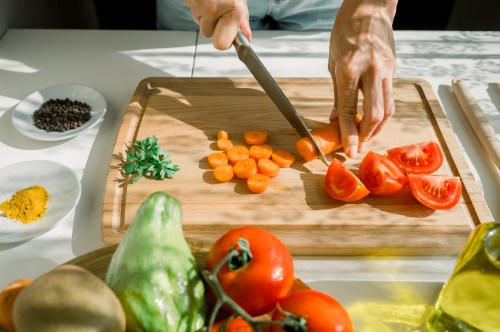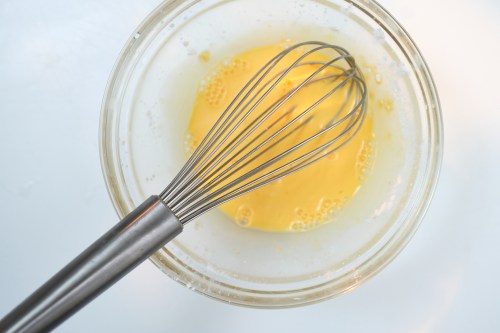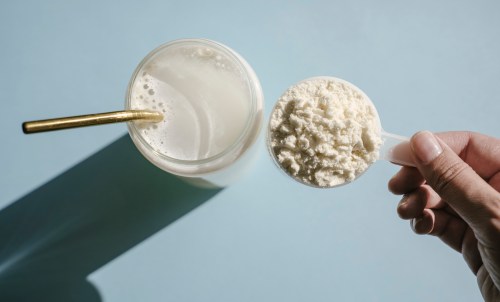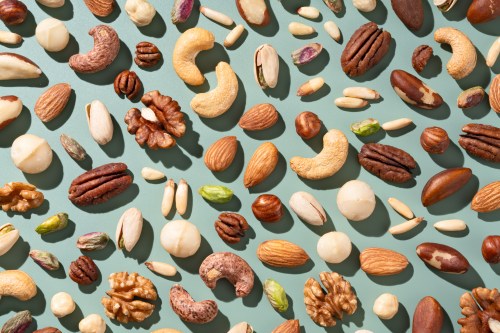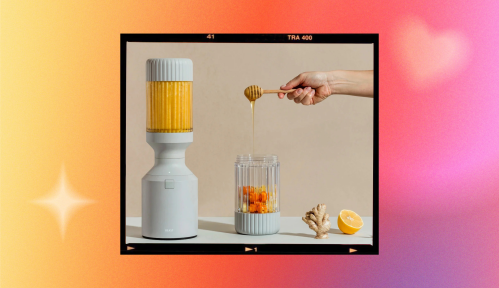Coffee, sushi, soft cheeses, alcohol—when you’re growing a human inside you, you suddenly have to give up some of your favorite foods and drinks to appease the fertility gods. But while high-mercury fish (we hardly knew ye, tuna poké) and bottomless mimosas are clear no-gos because of the health risks they pose to your little one, one wellness all-star has mamas-to-be scratching their heads: kombucha.
The popular fermented tea beverage has a well-deserved rep as a health-booster, mainly because it’s chock full of probiotics—the type of “good bacteria” that can help promote gut health, improve digestion, and cut down on inflammation in the body—and polyphenols, micronutrients with antioxidant qualities. But it also contains alcohol (a pregnancy no-no) and caffeine (the reason you’ve had to cut your matcha habit way back).
To see whether pregnant women need to add kombucha to the “see ya when my kid can eat solid food” list, I checked in with two healthy eating pros.
Can pregnant women drink kombucha safely? Keep reading to learn the main causes of concern—and whether they’re legit.

Why do some women avoid kombucha during pregnancy?
1. Kombucha contains alcohol
Kombucha famously has some naturally occurring alcohol (you may or may not remember when NFL player Michael Floyd claimed it was his fondness for kombucha that caused him to fail a breathalyzer test last year)—but is it enough to cause harm to your gestating child?
The official word by the Centers for Disease Control and Prevention (CDC) is that “there is no known safe amount of alcohol use during pregnancy.” But according to Amy Shapiro, RD, “If concerns are regarding fetal alcohol syndrome, a study done on 400,000 pregnant woman showed no cases of FAS in women who drank 8.5 [alcoholic] drinks per week”—more alcohol than you’d imbibe with a daily bottle of ‘booch.
Ariane Hundt, a clinical nutritionist and fitness expert, points to the same study to support her belief that kombucha is safe for most pregnant women. But, she adds, if you want to keep alcohol levels as low as possible, “The GT’s Enlightened [variety] has less alcohol, so I would recommend to stick with that one.” (It has less than .5 percent per bottle.)
2. Bad bacteria can sneak in
Kombucha is created by using a bacteria and yeast culture (called a SCOBY) to ferment a mixture of tea, sugar, and other flavors—and the probiotics that result, as mentioned previously, are the main reason kombucha is touted as a wellness beverage. But here’s where things get tricky: Pasteurization, the process that’s used to kill pathogenic (AKA harmful) bacteria and prevent disease, also kills off most of those good-for-you probiotics. And it’s recommended that pregnant women stay away from all unpasteurized products—including milk, cheese, juice, and, yep, kombucha. “Since many of these drinks are unpasteurized, then other bacteria that can be harmful may be present and we want to stay away from those,” Shapiro says.
“The right kombucha [to consume while pregnant],” Hundt adds, “is one not brewed in a home under potentially bacteria-growth-promoting conditions, but rather a store-bought, reputable brand that is made in sterile conditions.” But if you stick to pasteurized booch to quench your cravings, you’re missing out on many of the probiotic benefits.
3. It has caffeine
Because kombucha is made from black or green tea, it has caffeine in it. But! During the fermentation process, the caffeine content is reduced by about two-thirds, leaving about 6 to 14 mg of caffeine per 8-oz serving (depending on the brand—Health-Ade has less caffeine than GT, FWIW). The official recommendations by the American College of Obstetricians and Gynecology hold that pregnant women should limit their caffeine intake to less than 200 mg per day. (When consumed in these low quantities, caffeine has not been linked to miscarriage or preterm birth.) Which means, if you have one bottle per day, you’re likely A-OK.
The bottom line?
Shapiro and Hundt agree that if kombucha was a regular part of your wellness regimen prior to your pregnancy, it’s likely safe for you to continue consuming it in moderation as your bump grows. (Although, Hundt says, “Many experts and physicians advise against it because there isn’t good research out there on most supplements during pregnancy.”)
Even if you’re a longtime fan of kombucha, however, you should pay attention to any new reactions your body has to the beverage. “If a mom-to-be feels any negative effects or has immune-system deficiencies, it is best to avoid any type of food that may potentially launch an immune response,” Hundt says.
And if you’ve never had kombucha before, “I would wait to start or consult your midwife or doctor first,” says Shapiro. Don’t worry, you’ve still got turmeric tonics and chai lattes to hold you over until baby arrives.
Here’s the rundown on healthy foods you should avoid or limit during pregnancy. And keep these expert tips in mind when it comes to working out while pregnant.
Sign Up for Our Daily Newsletter
Get all the latest in wellness, trends, food, fitness, beauty, and more delivered right to your inbox.
Got it, you've been added to our email list.


